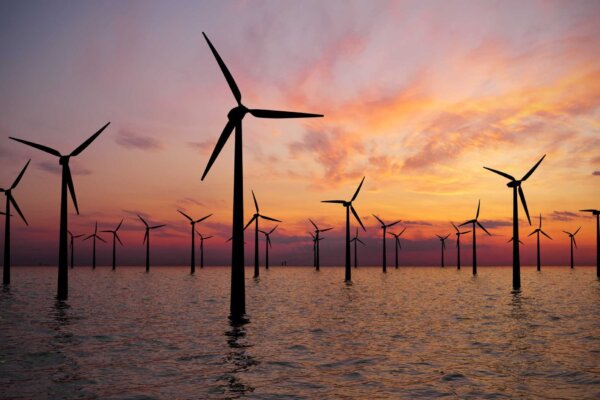THE WINDS OF CHANGE ARE BLOWING THROUGH PUBLIC AND PRIVATE FINANCES
With low carbon sources surpassing fossil fuels in the UK generation mix, mentioned in one of our most recent blogs, things are moving fast in the world of finance. Supporting coal, oil and gas projects is fast going out of fashion. Coming into favour are projects aligned to the Paris Agreement of keeping global warming to 1.5 °C.
Leading the charge is the European Investment Bank, which says it is going to make available €1Trillion during the 2020s for clean energy innovation, energy efficiency and investment in renewables1. The new lending policy will see an end to supporting fossil fuel-based projects by the end of next year. There will also be an increase in funds available for decentralised energy production and innovative energy storage and e-mobility, as well as for low or zero carbon generation and grid investments to support.
Offshore wind could well be one of the major beneficiaries for these investments. The European Commission is looking for between 230 and 450GW of wind generation by 2050, scaling up from the current 20GW today. A new report from Wind Europe, representing the turbine manufacturers and suppliers, confirms the feasibility of achieving 450GW – the level considered necessary to reach Net Zero Carbon in Europe by 20502.
The Net Zero Asset Owners Alliance is another ground-breaking development which will shape the direction of future finance for energy projects. Launched at the UN Climate Change Summit in New York in September, the Alliance is made up of pension fund and investment company members, such as Aviva, Axa and Allianz. Alliance members have nearly $4 trillion in assets under management and will now be transitioning their investment portfolios to be aligned with achieving Net Zero Carbon by 20503.


